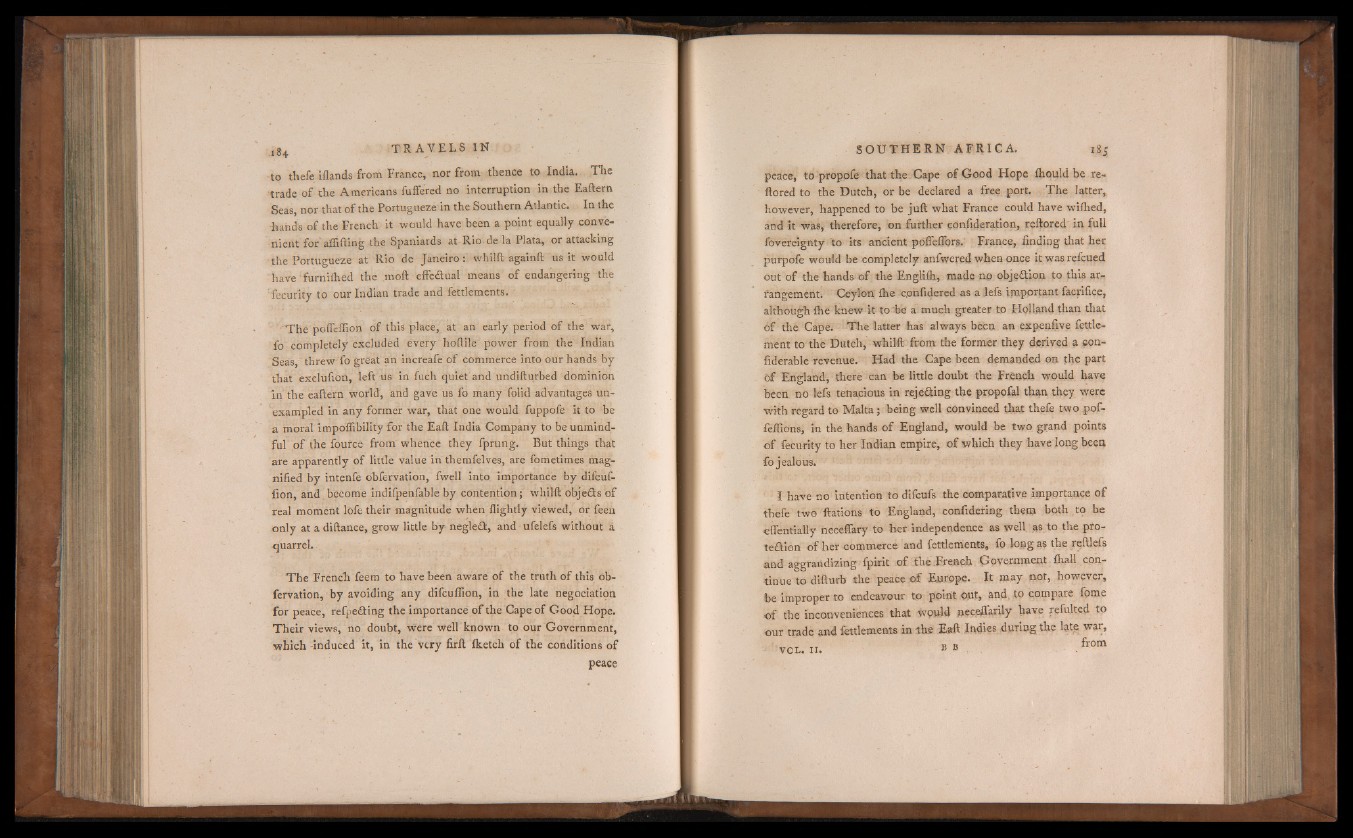
to thefe iilands from France, nor from thence to India. The
trade of the Americans fuffered no interruption in the Eaftern
Seas, nor that of the Portugueze in the Southern Atlantic. In the
hands of the French it would have been a point equally convenient
for aflifting the Spaniards at Rio-de la Plata, or attacking
the Portugueze at Rio de Janeiro : whilft againft us it would
have furniihed the moft effectual means of endangering the
fecurity to our Indian trade and fettlements.
The poffefiion of this place, at an early period of the war,
ib completely excluded every hoflile power from the Indian
Seas, threw- fo great an increafe of commerce into our hands by
that exelufion, left us in fuch quiet and undifturbed dominion
in the eaftern world, and gave us fo many folid advantages unexampled
in any former war, that one would fuppofe it to be
a moral impoflibility for the Eaft India Company to be unmindful
of the fource from whence they fprung. But things that
are apparently of little value in themfelves, are fometimes magnified
by intenfe obfervation, fwell into importance by difcuf-
fion, and become indifpenfable by contention ; whilft objects of
real moment lofe their magnitude when flightly viewed, or feen
only at a diftance, grow little by negle£t, and ufelefs without à
quarrel.
The French ieem to have been aware of the truth of this obfervation,
by avoiding any difcuflion, in the late négociation
for peace, refpeâing the importance of the Cape of Good Hope.
Their views, no doubt, were well known to our Government,
which -induced it, in the very firft iketch of the conditions of
peace
peace, to propofe that the Cape of Good Hope ihould be re-
ftored to the Dutch, or be declared a free port. The latter,
however, happened to be juft what France could have wiihed,
and it was, therefore, on further eonfideration, reftored in full
fovereignty to its ancient poffeffors. France, finding that her
purpoie would be completely anfwered when once it wasrefcued
out of the hands of the Engliih, made no objection to this arrangement.
Ceylon ihe cpnfidered as a lefs important facrifice,
although ihe knew it to be a much greater to Holland than that
of the Cape. The latter has always been an expenfive fettle-
tnent to the Dutch, whilft from the former they derived a con-
fiderable revenue. Had the Cape been demanded on the part
of England, there can be little doubt the French would have
been no lefs tenacious in rejecting the propofal than they were
with regard to Malta; being well convinced that thefe two pof-
feffions, in the hands of England, would be two grand points
of fecurity to her Indian empire, of which they have long been
fo jealous.
I have no intention to difcufs the comparative importance of
thefe two ftations to England, confideiing them both to he
effentially neceffary to her independence as well, as to the pro-
te&ion of her commerce and fettlements, fo long as the reftlefs
and aggrandizing fpirit of the .French Government fhall continue
to difturb the peace of Europe. It may not, however,
be improper to endeavour to point out, and, to compare fome
o f the inconveniences that would neccflarily have refulted to
our trade and fettlements in the Eaft ladies during the late war,
vox.. r r from II. B B -